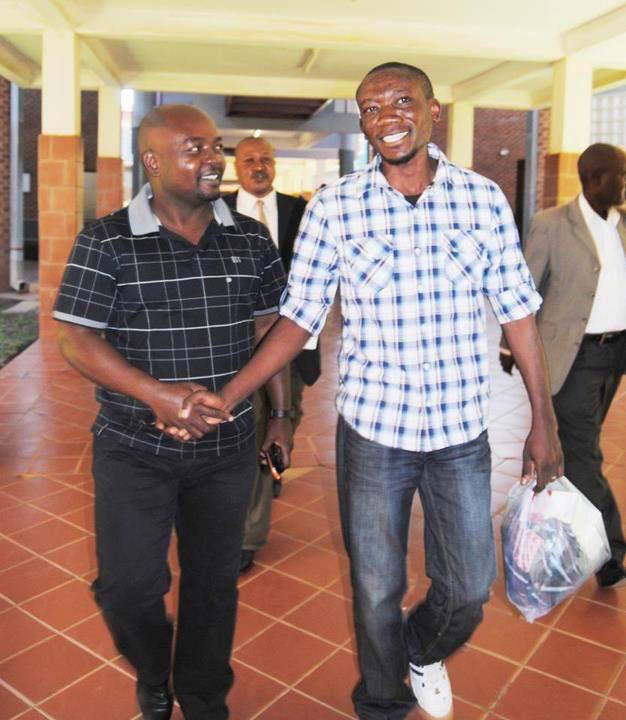Zambia court: Is it a crime to speak against anti-gay law?
Colin Stewart is a 45-year journalism veteran living in Southern…

The criminal case against AIDS fighter Paul Kasonkomona of Zambia was transferred today to the Zambian High Court for a hearing on whether he has a right to express his opinion that the nation’s anti-homosexuality law should be repealed.
The Southern Africa Litigation Centre issued this statement about the transfer:
Zambian High Court to Hear HIV Activist’s Freedom of Expression Case
5 June, 2013
Lusaka, 5 June 2013 – The Lusaka Magistrate’s Court ruled today that the criminal case against HIV activist Paul Kasonkomona should be transferred to the High Court for a hearing on the constitutional issues raised by the defence around the freedom of expression.
Kasonkomona was arrested in April 2013 and charged with violating section 178(g) of the Zambian Penal Code, which criminalises ‘every person who in any public place solicits for immoral purposes’ for public comments he made regarding the rights of lesbian, gay, bisexual and transgender individuals and sex workers.
“We are pleased that the magistrate has recognised the critical issue at stake in this case and sent the case to the High Court since the freedom to express one’s views goes to the very heart of a democracy,” said Anneke Meerkotter, SALC’s LGBT and Sex Work Project Lawyer. “If speech is stifled through the application of outdated criminal laws, Zambians will find themselves unable to openly discuss and debate some issues of real importance to them.”
After Kasonkomona’s first appearance at the Magistrate’s Court last month, the defence filed a constitutional application on two grounds – that section 178(g) of the Penal Code is vague and infringes on the right to freedom of expression; and that the Zambian prosecution’s practice of not providing an accused with detailed information about his case violates his right to a fair trial under the Constitution.
In response, the State filed papers arguing that there were no rights at stake to justify a constitutional reference to the High Court. The State further argued that a person’s right to freedom of expression can be limited on public morality grounds, and that the term ‘immoral purpose’ is clear as it refers to any behaviour unacceptable to society in a Christian nation.
The origins and purpose of section 178 will be at the crux of the arguments before the High Court. The State has argued that section 178 was intended by the legislature to curb speech on moral issues, while the defence maintains that the section was situated in the Penal Code chapter on nuisance and because of its origins in the English Vagrancy Act of 1898 it was merely incorporated into Zambian law without being discussed by the Zambian legislature.
The date of the High Court hearing will be confirmed in the coming months.
Kasonkomona is represented by Sunday Nkonde SC and William Ngwira from SBN Legal Practitioners, supported by SALC.
See the press release here: Media Advisory: Zambian High Court to Hear HIV Activist’s Freedom of Expression Case | Southern Africa Litigation Centre.
Related articles
- Homosexuality at issue in 2 trials in Zambia this week (76crimes.com)
- Appeal to Zambia: End repressive anti-gay frenzy (76crimes.com)
- Zambia VP after gay-rights arrest: ‘Live and let live’ (76crimes.com)
- Gay in Zambia: mob justice, jail until May 22 trial (76crimes.com)
- Zambia: Trial delayed for activist Paul Kasonkomona (76crimes.com)

